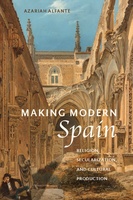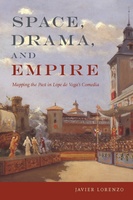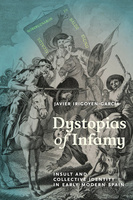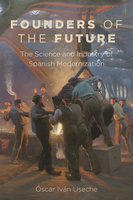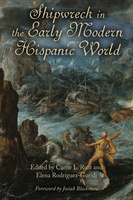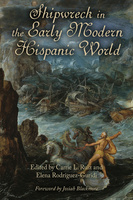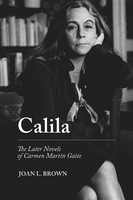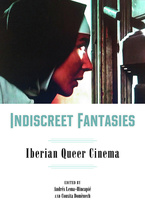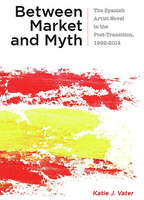Showing 1-9 of 9 items.
Making Modern Spain
Religion, Secularization, and Cultural Production
Bucknell University Press
Making Modern Spain: Religion, Secularization, and Cultural Production is a scholarly work on Spanish religious and cultural history. It is an interdisciplinary study that offers fresh insights into political and religious changes in nineteenth-century Spain by foregrounding social experiences through historical analysis and literary criticism.
Space, Drama, and Empire
Mapping the Past in Lope de Vega's Comedia
Bucknell University Press
Space, Drama, and Empire examines the role that space played as a vehicle to imperialize Spain’s history in Lope de Vega’s theater. Lope’s national history plays, this book argues, used the landscapes and settings of the past to foretell and legitimize Spain’s imperial present and to “map” or plot its expansionist trajectory throughout the centuries.
Dystopias of Infamy
Insult and Collective Identity in Early Modern Spain
Bucknell University Press
Drawing on sixteenth- and seventeenth-century religious, political, and literary texts, including the works of Cervantes, Dystopias of Infamy reconsiders how insults and infamy were imagined as potential sites of resistance to subjectification in early modern Spain.
Founders of the Future
The Science and Industry of Spanish Modernization
Bucknell University Press
In this ambitious new interdisciplinary study, Useche proposes the metaphor of the social foundry to parse how industrialization informed and shaped cultural and national discourses in late nineteenth- and early twentieth-century Spain. Here, Useche offers fresh readings of canonical writers such as Emilia Pardo Bazán, Concha Espina, Benito Pérez Galdós, Vicente Blasco Ibáñez, and José Echegaray as well as lesser known authors.
Shipwreck in the Early Modern Hispanic World
Bucknell University Press
Shipwreck in the Early Modern Hispanic World examines portrayals of nautical disasters in sixteenth- and seventeenth-century Spanish literature and culture. The essays collected here showcase shipwreck’s symbolic deployment to question colonial expansion and transoceanic trade; to critique the Christian enterprise overseas; to signal the collapse of dominant social order; and to relay moral messages and represent socio-political debates.
Shipwreck in the Early Modern Hispanic World
Bucknell University Press
Shipwreck in the Early Modern Hispanic World examines portrayals of nautical disasters in sixteenth- and seventeenth-century Spanish literature and culture. The essays collected here showcase shipwreck’s symbolic deployment to question colonial expansion and transoceanic trade; to critique the Christian enterprise overseas; to signal the collapse of dominant social order; and to relay moral messages and represent socio-political debates.
Calila
The Later Novels of Carmen Martín Gaite
Bucknell University Press
This is the first comprehensive study of the later novels of Spain’s most honored contemporary woman writer. Brown shares unpublished letters and conversations with Carmen Martín Gaite—a dear friend whom she called Calila—to elucidate her last six novels, all of which explore themes that are highly relevant today.
Indiscreet Fantasies
Iberian Queer Cinema
Edited by Andrés Lema-Hincapié and Conxita Domènech
Bucknell University Press
Offering in-depth analyses of fifteen different queer films from the Iberian Peninsula, this collection shows how a diverse group of filmmakers from regions including Catalonia, Portugal, Castile, Galicia, and the Basque Country have produced films that challenge the region’s conservative religious values and gender norms, while intervening in vital debates about politics, history, and nation.
Between Market and Myth
The Spanish Artist Novel in the Post-Transition, 1992-2014
Bucknell University Press
Between Market and Myth is a study of novels about artists and the art world written in Spain in the years following the Transition to democracy after Francisco Franco’s death. The novels studied portray a clash between the myth of artistic freedom and artists’ willing recruitment or cooptation by market forces or political influence.
Stay Informed
Subscribe nowRecent News

